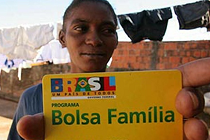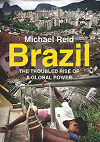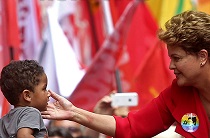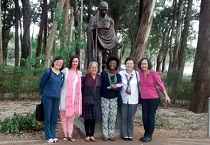Brazil: protests and Petrobras
The 14 March protests is the latest in a series against corruption in Brazil. While the government is acting, the political and economic environment will continue to deteriorate until it is rooted out.
 Courtesy:
Courtesy:
The 14 March protests is the latest in a series against corruption in Brazil. While the government is acting, the political and economic environment will continue to deteriorate until it is rooted out.
 Courtesy:
Courtesy:
The nature of the sweeping victory of AAP and Kejriwal may be unprecedented in India but not in Latin America. In Brazil, Mexico and Colombia, there are lessons for AAP and Arvind Kejriwal as they assume power in New Delhi – and also for the Congress Party as well as the BJP
 Courtesy: globalsherpa.org
Courtesy: globalsherpa.org
The Indian government has undertaken a massive financial inclusion scheme to bring bank accounts to the poor. But poverty alleviation needs to be addressed at multiple levels for which the Latin American example of using targeted and customised conditional cash transfer programmes can help India
 Courtesy: Yale University Press
Courtesy: Yale University Press
Michael Reid's book argues that Brazil, a nation that was built by a top-down elite, is now moving to a new phase of a bottom-up approach to political and economic reform
 Courtesy: Newscom.com
Courtesy: Newscom.com
The reelection of President Dilma Rousseff means continuation of the slow growth of the Brazilian economy and a lower likelihood of much-needed, major political and economic reforms. India should lower its expectations on a global partnership with Brazil
The Green Party in Brazil is a small but significant presence, whose ideas of reform and conservation are gaining wider acceptance. In this interview, Eduardo Jorge, the party’s leader, discusses what BRICS represents, his views on India, and the response of governments and business to climate change

Rajni Bakshi, Senior Gandhi Peace Fellow at Gateway House, was recently invited to Brazil and Colombia to speak about Gandhi, her book ‘Bazaars, Conversations and Freedom’ and her forthcoming paper on Trusteeship. She reports on the longing for non-violence in these societies and the groups working to make it real
 Courtesy: RajniBakshi
Courtesy: RajniBakshi
Rajni Bakshi, Senior Gandhi Peace Fellow at Gateway House, was recently invited to Brazil and Colombia to speak about Gandhi, her book ‘Bazaars, Conversations and Freedom’ and her forthcoming paper on Trusteeship. She reports on the longing for non-violence in these societies and the groups working to make it real
 Courtesy: Wikimedia
Courtesy: Wikimedia
Since none of the candidates won the required 50% majority in the Brazilian presidential elections held October 5, there will be a second round on October 26 between the centre-left President Dilma Rouseff and centre-right Aecio Neves. As of now, polls predict a Rouseff win - but like India, the Brazilian electorate is known for throwing up surprises
 Courtesy: wikimedia commons
Courtesy: wikimedia commons
Brazilian president Dilma Rouseff's bid for re-election has been ambushed in just two weeks by activist Marina Silva who is now predicted to win the October elections. If elected, Marina is likely to continue with the pro-poor policies of the current government, and she has already shown a keen interest in foreign policy. PM Modi will find Marina more proactive and forthcoming than Rouseff